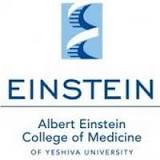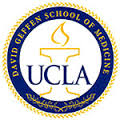Treatment Algorithm to Reduce the Use of Vancomycin in Adults With Blood Stream Infection
| Status: | Completed |
|---|---|
| Conditions: | Infectious Disease, Hematology |
| Therapuetic Areas: | Hematology, Immunology / Infectious Diseases |
| Healthy: | No |
| Age Range: | 18 - Any |
| Updated: | 1/7/2018 |
| Start Date: | February 2011 |
| End Date: | March 4, 2017 |
A Multi-Center, Randomized, Open-Label, Comparative Study to Assess the Safety and Efficacy of a Treatment Algorithm to Reduce the Use of Vancomycin in Adult Patients With Blood Stream Infections Due to Staphylococci
The purpose of this study is to accurately determine the length of appropriate drug treatment
for staphylococcal blood stream infection. The study seeks to address important information
about the management of staphylococcal blood stream infections.
for staphylococcal blood stream infection. The study seeks to address important information
about the management of staphylococcal blood stream infections.
To demonstrate that the clinical efficacy of algorithm-based therapy of patients with
staphylococcal blood stream infection is noninferior to current standard of care.
PP (per protocol) population: randomized patients EXCLUDING those that: Received a PENS
antibiotic -Did not undergo removal of intravascular catheter suspected to be infected. Note
that patients with simple CoNS bacteremia may retain the catheter; all other patients should
have their catheter(s) removed. -Had blood stream infection with a vancomycin-resistant
staphylococcus; or a staphylococcus resistant to protocol-identified alternative drugs if
these were used -Discontinued study medication prematurely for reasons other than clinical
failure -Did not undergo final TOC assessment -Did not comply with all Patient Inclusion
Criteria -Violated any Patient Exclusion Criteria
- Died within 3 days of randomization
- Were classified as non-evaluable
PPE Population: Patients from the PP population who did not have complicated staphylococcal
infection.
staphylococcal blood stream infection is noninferior to current standard of care.
PP (per protocol) population: randomized patients EXCLUDING those that: Received a PENS
antibiotic -Did not undergo removal of intravascular catheter suspected to be infected. Note
that patients with simple CoNS bacteremia may retain the catheter; all other patients should
have their catheter(s) removed. -Had blood stream infection with a vancomycin-resistant
staphylococcus; or a staphylococcus resistant to protocol-identified alternative drugs if
these were used -Discontinued study medication prematurely for reasons other than clinical
failure -Did not undergo final TOC assessment -Did not comply with all Patient Inclusion
Criteria -Violated any Patient Exclusion Criteria
- Died within 3 days of randomization
- Were classified as non-evaluable
PPE Population: Patients from the PP population who did not have complicated staphylococcal
infection.
Inclusion Criteria:
1. Provide signed and dated informed consent. The patient's legally authorized
representative (LAR) can provide a signed informed consent for the patient if allowed
by local Institutional Review Board/Ethics Committee (IRB/EC) policy.
2. Is ≥ 18 yrs of age.
3. If the subject has an intravenous catheter in place then the subject and his/her
primary health care provider must agree to have the catheter removed within 5 days of
the initial blood culture draw with the exception of those subjects who meet criteria
for simple CoNS bacteremia as defined in Table 1. The catheter may be retained in
those subjects with simple CoNS bacteremia.
4. Has blood stream infection defined as at least one blood culture positive for S.
aureus or CoNS. In most cases, vancomycin(or other study drug alternative) will have
been started prior to randomization. Enrollment windows depend on speciation and
clinical classification as follows:
1. identification of CoNS and classification as simple per Table 1-must be
randomized within 3 calendar days of the start of treatment effective for the
baseline infecting pathogen
2. identification of CoNS and classification as uncomplicated per Table 1 must be
randomized within 4 calendar days of the start of treatment effective for the
baseline infecting pathogen
3. identification of S. aureus - must be randomized within 12 calendar days of the
start of treatment effective for the baseline infecting pathogen
5. This criterion has been removed
6. Women of child bearing potential must have a negative urine and/or serum pregnancy
test.
7. All patients of reproductive potential must be abstinent or agree to use
double-barrier contraception while receiving study (algorithm based or Standard of
Care) therapy.
Exclusion Criteria:
1. Has known or suspected new complicated staphylococcal infection at the time of
enrollment.
2. Weigh ≥ 200 kg.
3. Has non-removable intravascular foreign material at the time a positive blood culture
was drawn (e.g., intracardiac pacemaker or cardioverter/defibrillator wires,
hemodialysis access grafts, cardiac prosthetic valve, valvular support ring).
Exception: coronary stents, inferior vena cava (IVC) filters in place > 6 weeks,
patients with pacemakers whose baseline infecting pathogen is a CoNS, vascular stents
in place for > 6 weeks, non-hemodialysis grafts in place >90 days and hemodialysis
grafts not used within past 12 months and not previously infected are eligible for
randomization. Arthroplasties and other extravascular devices, e.g. synthetic hernia
repair mesh, and non-arthroplasty orthopedic prostheses including pins or plates, are
acceptable as long as there are no signs or symptoms of foreign material-related
infection at the time of randomization.
4. This criterion has been removed
5. Has a moribund clinical condition such that there is a high likelihood of death or
cardiac surgery during the next three days.
6. Has shock or hypotension (supine systolic blood pressure < 80 mmHg) or oliguria (urine
output < 20 mL/h) unresponsive to fluids or pressors within four hours.
7. Has received an investigational antibacterial agent with anti-staphylococcal activity
within 30 days prior to randomization.
8. Has a documented history of significant allergy or intolerance to all
protocol-approved antibiotics anticipated to be effective for their infection.
9. Has an infecting pathogen with confirmed reduced susceptibility to vancomycin (Minimum
Inhibitory Concentrations (MIC) > 2 µg/mL) if known. Note: If reduced susceptibility
to vancomycin is discovered after enrollment, the patient will be treated with
daptomycin (if pathogen is susceptible). Patient will remain in study as appropriate
and be evaluated in the Intent to Treat (ITT) analysis, but will be excluded from
Protocol Population (PP) analyses.
10. For S. Aureus patients, is severely neutropenic (absolute neutrophil count <
0.100x103/mm3) or is anticipated to develop severe neutropenia (absolute neutrophil
count < 0.100x103/ mm3) during the study treatment period due to prior or planned
chemotherapy. CoNS patients with neutropenia are eligible to be enrolled.
11. This criterion has been removed
12. Has previously known Human Immunodeficiency Virus (HIV) infection with a nadir CD4+
count of <100 cells/mm3 within the past 12 months
13. Is considered unlikely to comply with study procedures or to return for scheduled
post-treatment evaluations.
14. Is pregnant or trying to get pregnant, nursing, or lactating.
15. Has known or suspected septic arthritis, osteomyelitis, pneumonia or other metastatic
focus of infection. CoNS patients with pneumonia and not being treated or anticipated
to start treatment with antibiotics effective for the baseline infecting pathogen can
be included
16. Has polymicrobial blood stream infection including at least one non-staphylococcal
species, except AFTER consultation with the Clinical Medical Monitor at DCRI. Note
that it is possible that a subject may not have a known polymicrobial bloodstream
infection at the time of randomization, but additional pathogen(s) can subsequently be
isolated from the initial blood culture. These patients will be eligible to remain in
the trial. Please also note that patients with S. aureus plus CoNS will follow the
treatment pathway for S. aureus.
17. This criterion has been removed.
18. Is hemodialysis dependent or has end stage renal disease (Creatinine Clearance (CrCl)
< 30 cc/min).
19. Developed Staphylococcus aureus blood stream infection within 72 hours of percutaneous
coronary revascularization
20. Received of any of the following antibiotics for 7 or more of the 10 calendar days
immediately preceding the calendar day that the initial positive blood culture was
drawn:
1. If methicillin susceptibility of the isolate is unknown at the time of
enrollment: vancomycin; daptomycin; telavancin; tigecycline; linezolid (in either
oral or IV administration); quinupristin/dalfopristin; piperacillin/tazobactam;
penicillin; nafcillin; oxacillin; cloxacillin; cefazolin, ceftriaxone,
ceftaroline, dalbavancin, oritavancin, tedizolid, and levofloxacin or equivalent
fluoroquinolone (in either oral or IV administration) Note: ciprofloxacin is not
an exclusion criteria.
2. If the staphylococcal isolate is known to be methicillin resistant: vancomycin;
daptomycin; telavancin; tigecycline; linezolid (in either oral or IV
administration), quinupristin/dalfopristin, dalbavancin, oritavancin, tedizolid,
and ceftaroline.
Note: patients who have developed bacteremia after at least 7 days of prophylaxis with
oral antibiotics have by definition failed prophylaxis and the oral antibiotic can be
deemed non-effective for the index bacteremia. Oral antibiotics that have failed as
prophylaxis in this manner will not be considered exclusionary or count towards the
number of antibiotic days but must be stopped upon randomization
21. Has previously participated in this study.
We found this trial at
15
sites
Charlotte, North Carolina 28203
Principal Investigator: James Horton, MD
Phone: 704-335-3823
Click here to add this to my saved trials
1720 2nd Ave S
Birmingham, Alabama 35233
Birmingham, Alabama 35233
(205) 934-4011

Principal Investigator: John Baddley, MD
Phone: 205-934-2186
University of Alabama at Birmingham The University of Alabama at Birmingham (UAB) traces its roots...
Click here to add this to my saved trials
Barcelona, 08036
Principal Investigator: Jose M Miro, MD, PhD
Phone: +34-93-227-5400
Click here to add this to my saved trials
1300 Morris Park Ave
Bronx, New York 10461
Bronx, New York 10461
(718) 430-2000

Principal Investigator: Paul Riska, MD
Phone: 718-920-6494
Albert Einstein College of Medicine The Albert Einstein College of Medicine of Yeshiva University is...
Click here to add this to my saved trials
171 Ashley Avenue
Charleston, South Carolina 29425
Charleston, South Carolina 29425
843-792-1414

Principal Investigator: Dannah Wray, MD
Phone: 843-792-4541
Medical University of South Carolina The Medical University of South Carolina (MUSC) has grown from...
Click here to add this to my saved trials
Denver, Colorado 80210
Principal Investigator: Timothy Jenkins, MD
Phone: 303-602-5041
Click here to add this to my saved trials
2799 W Grand Blvd
Detroit, Michigan 48202
Detroit, Michigan 48202
(313) 916-2600

Principal Investigator: Marcus Zervos, MD
Phone: 313-916-2573
Henry Ford Hospital Founded in 1915 by auto pioneer Henry Ford and now one of...
Click here to add this to my saved trials
2301 Erwin Rd
Durham, North Carolina 27710
Durham, North Carolina 27710
919-684-8111

Principal Investigator: Vivian Chu, MD
Phone: 919-668-7174
Duke Univ Med Ctr As a world-class academic and health care system, Duke Medicine strives...
Click here to add this to my saved trials
Greenville, North Carolina 27834
Principal Investigator: Paul Cook, MD
Phone: 252-744-4500
Click here to add this to my saved trials
Greenville, South Carolina 29615
Principal Investigator: John Schrank, MD
Phone: 864-455-9025
Click here to add this to my saved trials
Houston, Texas 77030
Principal Investigator: Isam Raad, MD
Phone: 713-792-7943
Click here to add this to my saved trials
10833 Le Conte Ave
Los Angeles, California 90095
Los Angeles, California 90095
(310) 825-4321

David Geffen School of Medicine, UCLA In 2002 Mr. David Geffen announced a $200 million...
Click here to add this to my saved trials
Emile St
Omaha, Nebraska 68198
Omaha, Nebraska 68198
(402) 559-4000

Principal Investigator: Mark Rupp, MD
Phone: 402-559-3243
Univ of Nebraska Med Ctr A vital enterprise in the nation’s heartland, the University of...
Click here to add this to my saved trials
Click here to add this to my saved trials
Worcester, Massachusetts 01752
Principal Investigator: Jennifer Daly, MD
Phone: 508-856-4060
Click here to add this to my saved trials